Types of Lighting in Interior Design: Ambient, Task & Accent
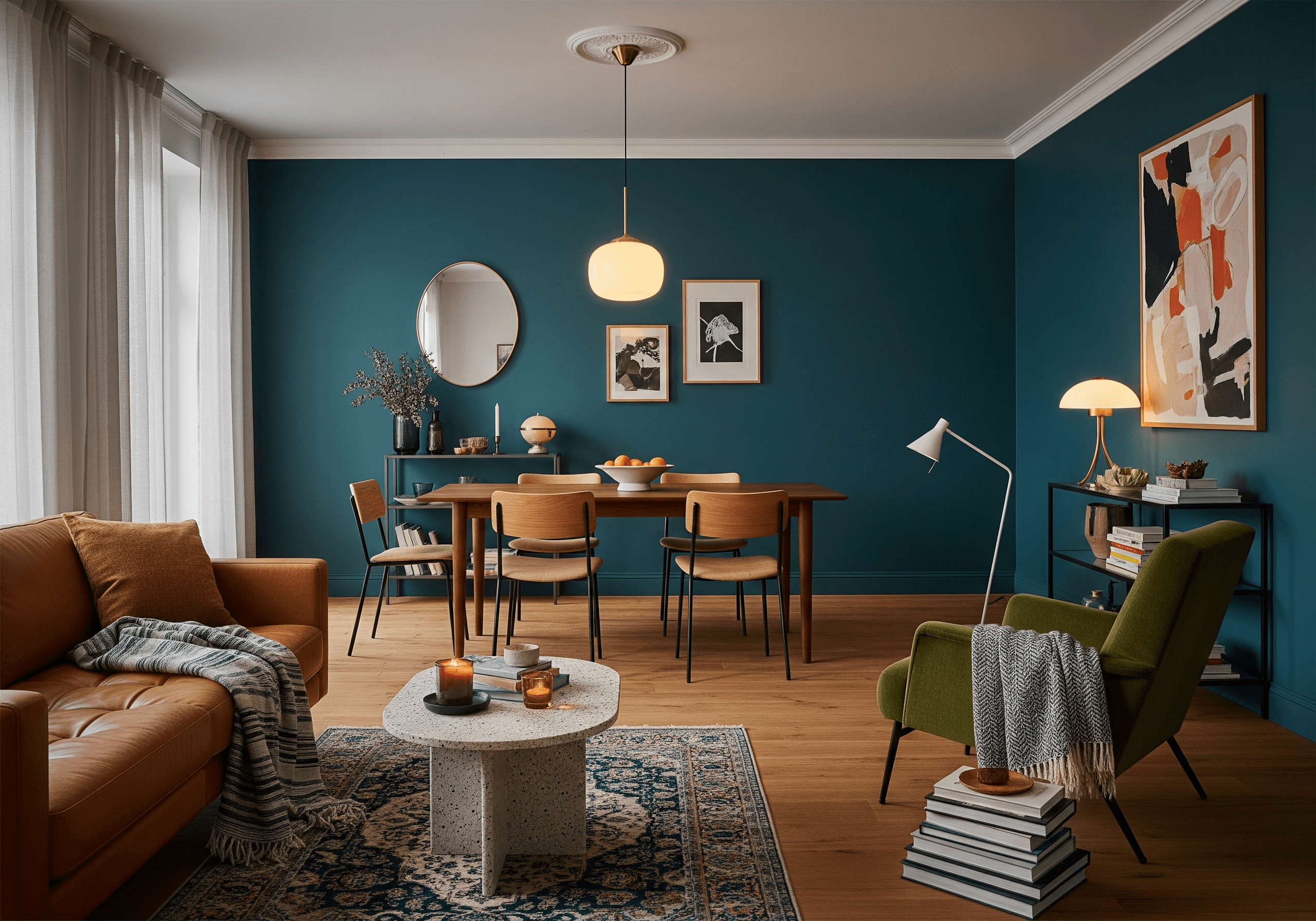
Designed with DecorMatters AI Designer
You can choose the perfect sofa, layer in luxurious textures, and even land on that elusive wall color—but if the lighting is wrong, the entire room falls short. Designers know that lighting in interior design is never an afterthought. It’s the element that sets the mood, gives shape to a space, and brings materials and colors to life.
At its core, there are three types of lighting in interior design: ambient, task, and accent. Ambient lighting creates the overall atmosphere, task lighting provides clarity for work or daily rituals, and accent lighting draws the eye to what deserves attention—an architectural detail, a piece of art, or even the texture of a stone wall.
In the pages ahead, we’ll explore how to weave these layers together, with practical indoor lighting ideas you can adapt to any room—from the glow of a chandelier in the dining room to the precision of under-cabinet strips in the kitchen. Because when the lighting is right, everything else finally feels right too.
Lighting in Interior Design: Mood, Color Temperature (Kelvin) & Brightness
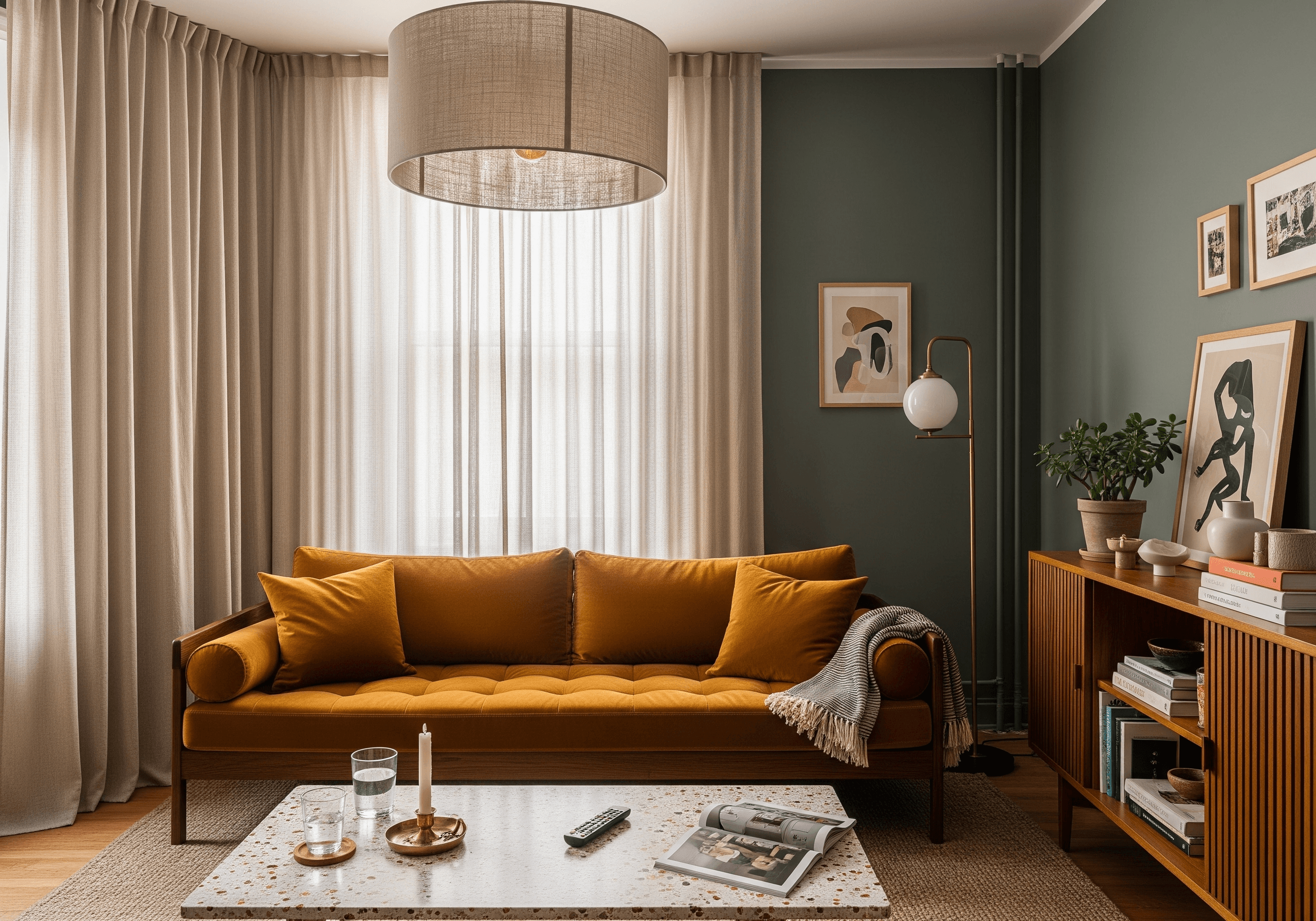
Interior design lighting isn't just about illuminating a room; it's a nuanced play of science that directly impacts how you feel and perceive a space.
Let's talk facts: the color temperature of a light bulb, measured in Kelvin, can dramatically alter your room's ambiance—guidance widely recognized by the Illuminating Engineering Society (IES). Lower Kelvin numbers produce a warm, cozy light that's perfect for winding down, while higher Kelvin values offer a cool, energizing glow ideal for focus-intensive tasks.
And don't underestimate the psychological power of lighting. Studies have shown that warm light can create a sense of comfort and relaxation, ideal for living rooms and bedrooms.
On the flip side, cool light tends to sharpen concentration and boost energy, making it a go-to choice for home offices or kitchens. Light also influences our circadian rhythm, with cooler tones stimulating alertness—a connection reinforced by Harvard Medical School research.
Ambient Lighting in Interior Design: The Foundation Layer
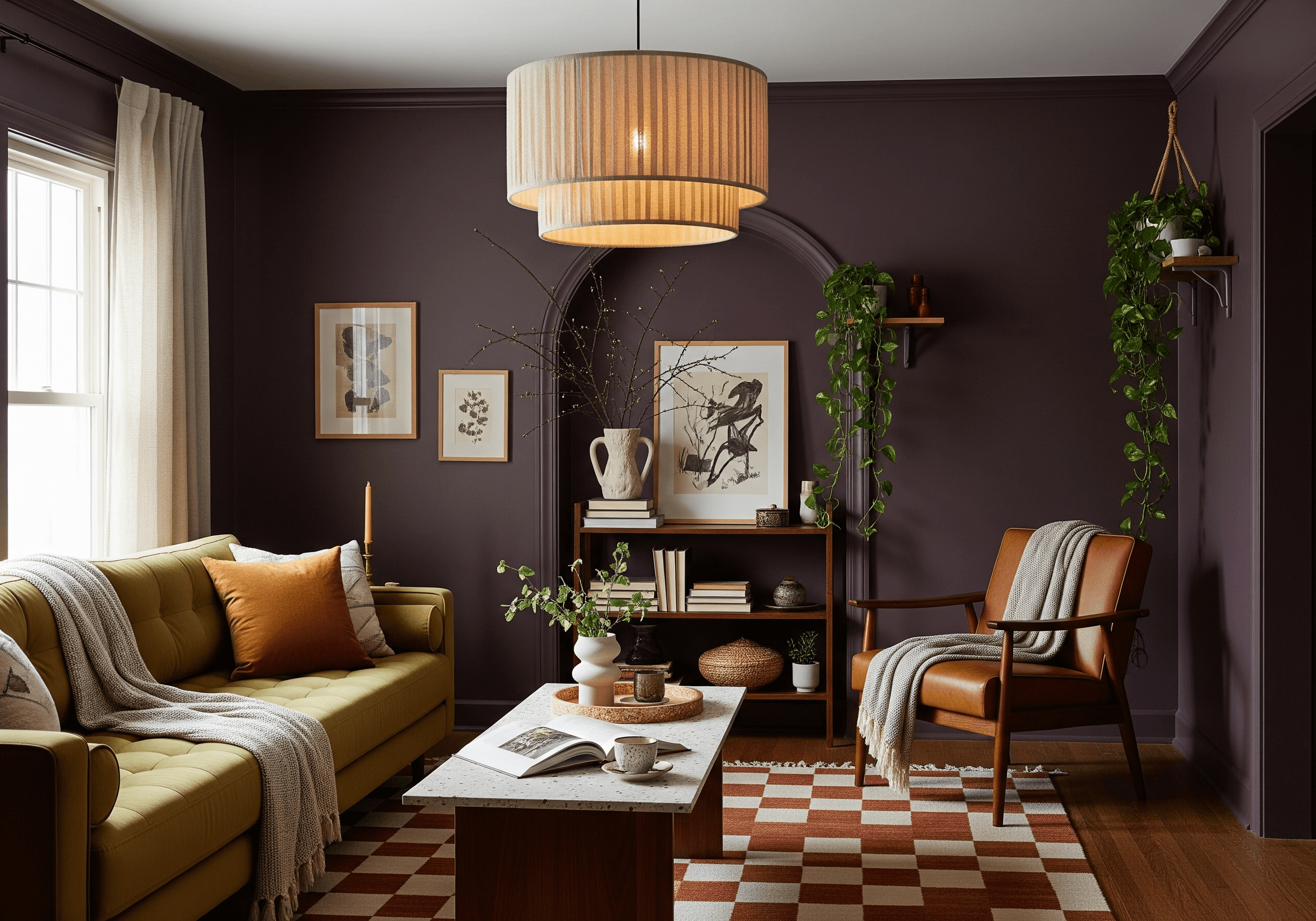
When we talk about lighting a room, the first thing that often comes to mind is ambient lighting. Imagine it as the foundational layer, the background lighting, on which all other lighting elements are built.
Ambient lighting provides the general living room illumination, allowing you to navigate and perform basic tasks, while enhancing the flow of natural light in your home for a brighter, more balanced space. Chandeliers, wall-mounted fixtures, and LED downlights are typical sources that help set the stage.
Ambient lighting does more than just keep you from tripping over the furniture—it shapes the entire mood of a room. Imagine sinking into a soft chair bathed in a warm glow—that's instant coziness. On the other hand, a brighter, cooler light can make a space buzz with energy.
But how do you strike the right balance? First, consider the room's primary function. If it's a space for relaxation, like a bedroom or living room, opt for warmer tones.
For work-intensive areas like kitchens or home offices, go for a brighter, cooler lighting style. And remember, dimmer switches can be your best friend; they offer you the flexibility to adjust the lighting to match any activity or mood.
Task Lighting in Interior Design: Focused Light for Work & Daily Tasks
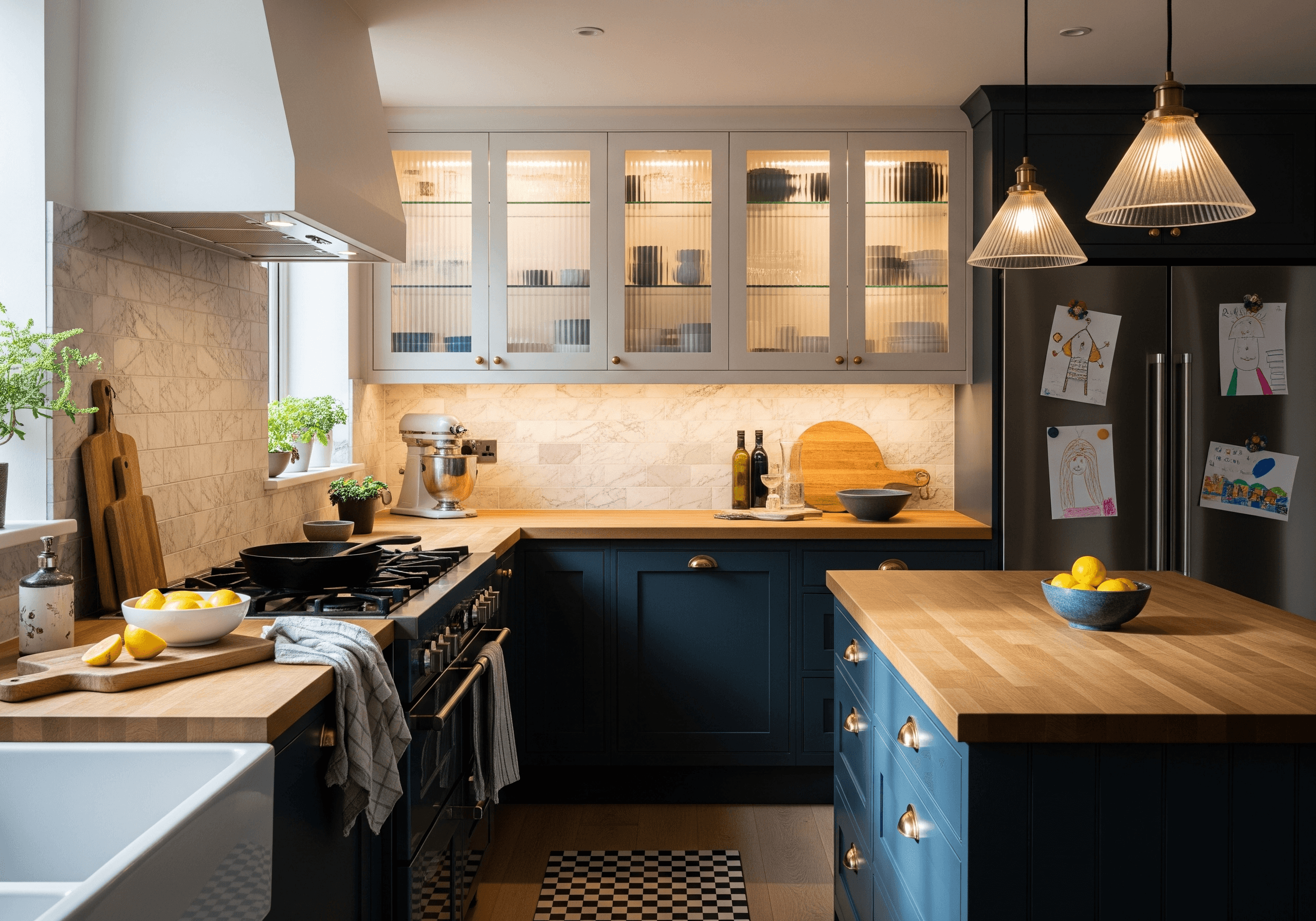
Task lighting is where form meets function in the most splendid way. Think of it as your personal assistant in the home, always there to spotlight your most important tasks—whether you're cooking up a culinary masterpiece, engrossed in the latest bestseller, or perfecting your makeup.
Popular lighting ideas in this category include room lights, reading and desk lamps, under-cabinet lights in the kitchen, and vanity lighting in the bathroom. Modern options can also integrate with smart home technology, making lighting both functional and intuitive.
But here's the deal: task lighting doesn't have to be purely functional. With the right choices, these fixtures can be as attractive as they are useful. A sleek reading lamp can serve as statement lighting for your living room, while ornate vanity lights can add a touch of elegance to your morning routine.
The key to effective task lighting lies in pinpointing your needs first and then selecting fixtures that blend seamlessly with your décor. Aim for adjustable and focused light sources that serve their purpose without overwhelming the space. They should harmonize with the room's overall decor.
Accent Lighting in Interior Design: Highlighting Art & Architectural Features
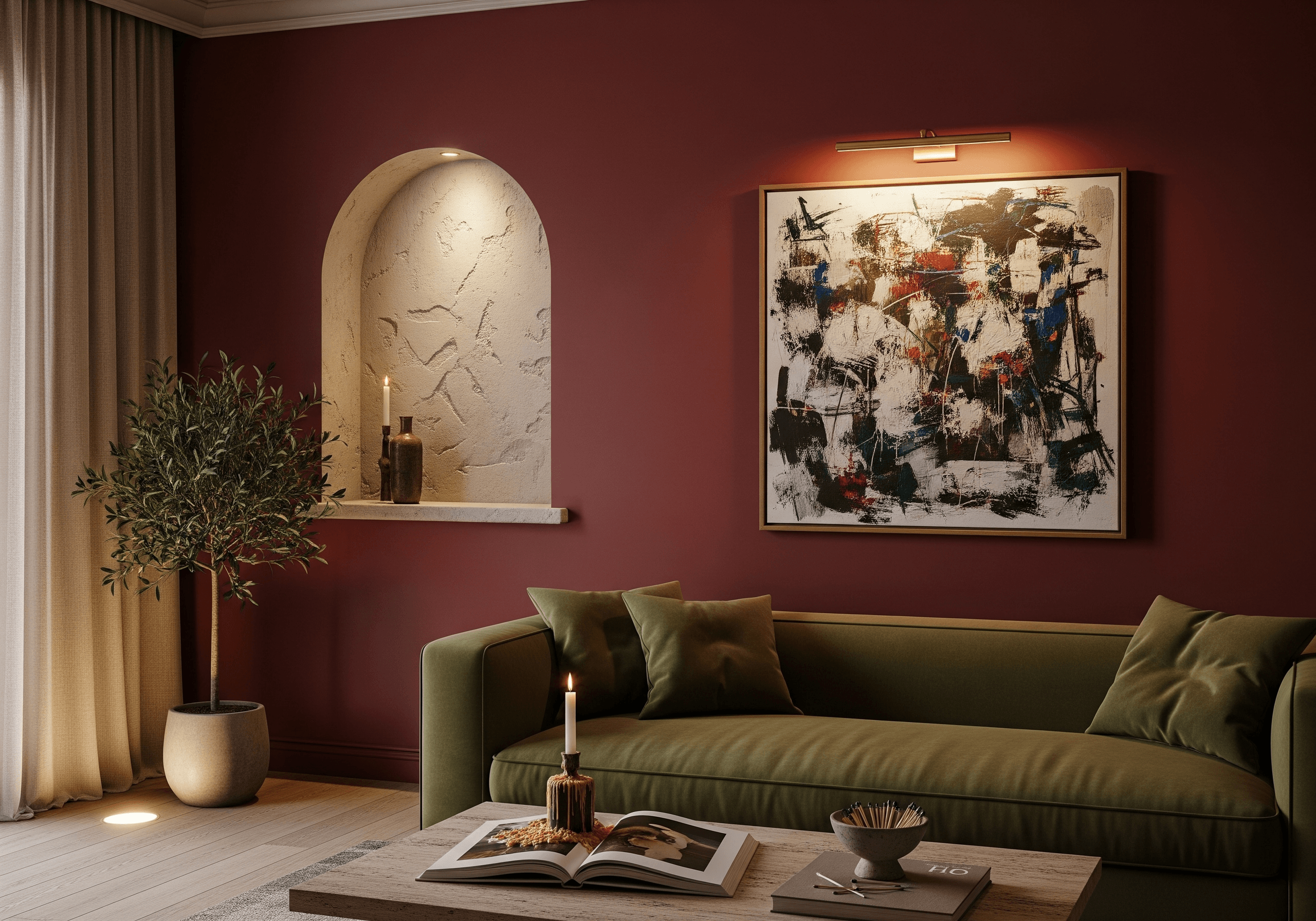
Indoor accent lighting is like a curator in an art gallery, guiding your gaze to the important parts of a room. It’s about drama and emphasis, highlighting important architectural features, artworks, or anything you want to focus on—especially when paired with bold hues and eye-catching color palettes.
The tools of the trade? Spotlights that can focus on your prized painting, track lighting that can run the length of a textured wall, and uplights that can make a sculpture look almost ethereal.
But here's where expertise comes into play: Accent lighting is not a one-size-fits-all endeavor. It requires thoughtfulness in its application. The angle, intensity, and even the color of the light source can make or break the effect you’re trying to achieve.
For instance, using too many fixtures or overly bright bulbs can overstimulate the space, making it feel cluttered rather than curated. Our AI Interior Design App lets you preview accent lighting before making changes in real life.
Layered Lighting in Interior Design: How to Combine Ambient, Task & Accent
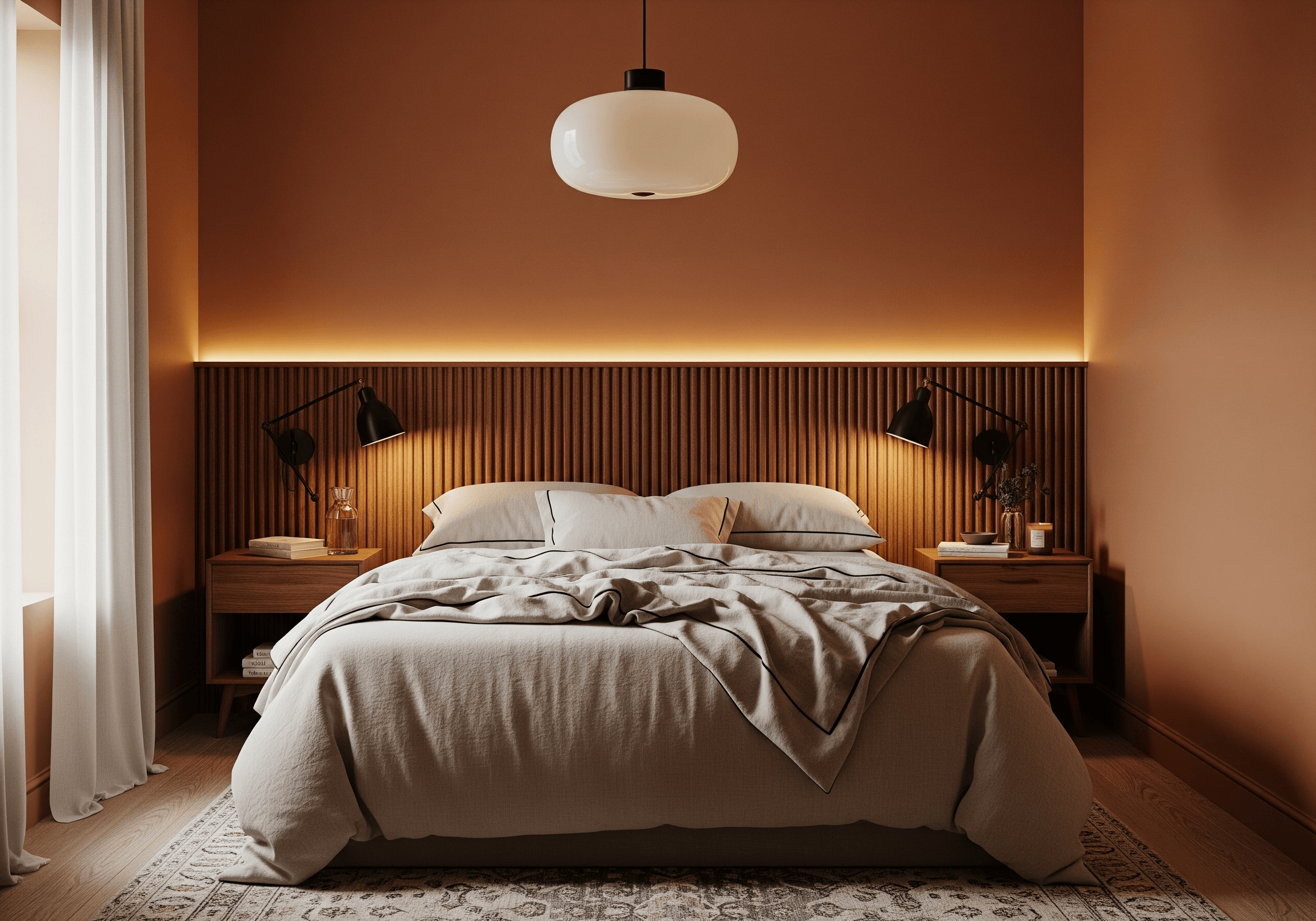
The process starts with laying down your base through ambient lighting—think of it as your canvas. Next, bring in task lighting to target specific activities, whether it's cooking in the kitchen or curling up with a book in the living room.
The final flourish? Accent lighting. Used sparingly, this can draw attention to architectural features, artwork, or even houseplants, adding depth and drama to your space.
Here's an example: a cozy home library. Ambient lighting from a tasteful chandelier provides general illumination. A sleek, adjustable floor lamp serves as the task light for reading, and wall-mounted spotlights showcase the impressive bookshelves. Using the Triple Layering Technique, this room is both a cozy reading space and a design masterpiece.
Tools like our Living Room Design App make it simple to visualize these layers together before you commit.
Visualize Your Lighting Plan with DecorMatters
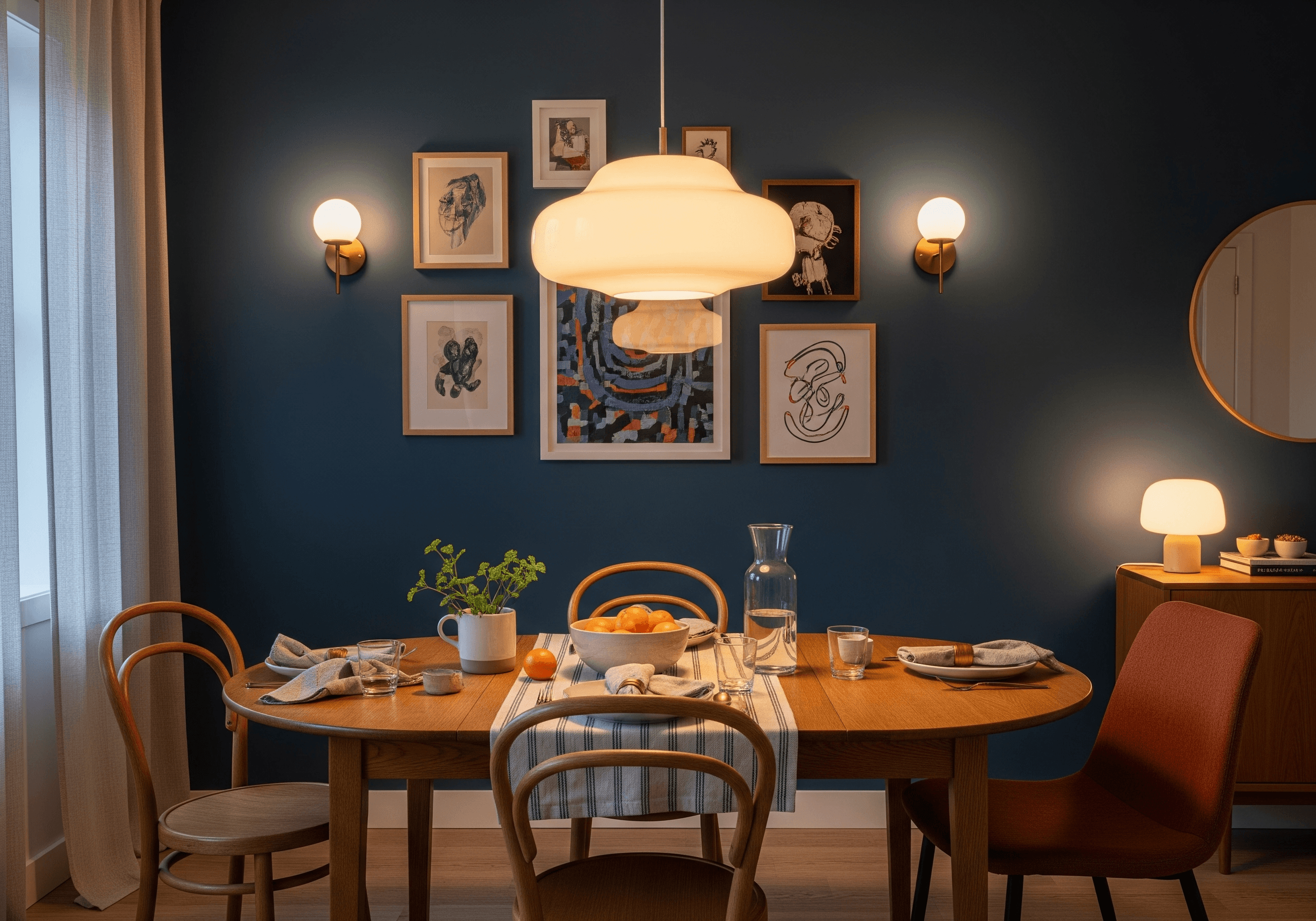
Mastering the types of lighting in interior design—ambient, task, and accent—turns a good room into a great one. The smartest next step is to test your plan before you buy: adjust Kelvin, place fixtures, and layer dimmers until the space feels right.
Design it in minutes with the DecorMatters Interior Design App, then browse endless real-room inspiration on our Explore page—thousands of ideas from the community showing how ambient, task, and accent lighting come together in living rooms, kitchens, bedrooms, and more.
Lighting in Interior Design: FAQs
What are the three types of lighting in interior design?
The three layers are ambient, task, and accent. Ambient establishes overall illumination, task delivers brighter, focused light for work zones, and accent adds direction and drama to highlight art, texture, or architecture. Used together, they create a balanced, high-functioning room.
What is the difference between ambient, task, and accent lighting?
Ambient = general glow (ceiling fixtures, recessed cans). Task = targeted brightness where you read, prep, or groom (desk lamps, under-cabinet LEDs, vanity bars). Accent = directional emphasis (picture lights, spots, wall washers) to shape depth and draw the eye.
How do you layer lighting in a room (ambient, task, accent)?
Start with ambient for even coverage, add task at counters, desks, and bedsides, then use accent sparingly to define focal points. Put each layer on separate dimmers, keep color temperature consistent per room, and aim ~2700–3000K for relaxing areas, ~3500–4000K where clarity matters.
What lighting is best for a living room, bedroom, and kitchen?
Living room: warm ambient (2700–3000K) plus floor/table lamps; add picture lights for art.
Bedroom: soft, dimmable ambient with bedside task; avoid harsh overheads.
Kitchen: bright ambient (recessed/flush) plus under-cabinet task at 3500–4000K; consider toe-kick or shelf accents for depth.
What color temperature (Kelvin) should I use in interior design?
Use ~2700–3000K to feel cozy and flattering in living spaces and bedrooms; choose ~3500–4000K for kitchens, offices, and bathrooms to improve visibility. For truer color rendering, look for CRI 90+ bulbs. Keep one Kelvin range per room for a cohesive look.
UP NEXT: 36 Creative Photo Wall and Gallery Wall Ideas—decorate your walls with your artwork, family photos, prized possessions, or anything that defines you.
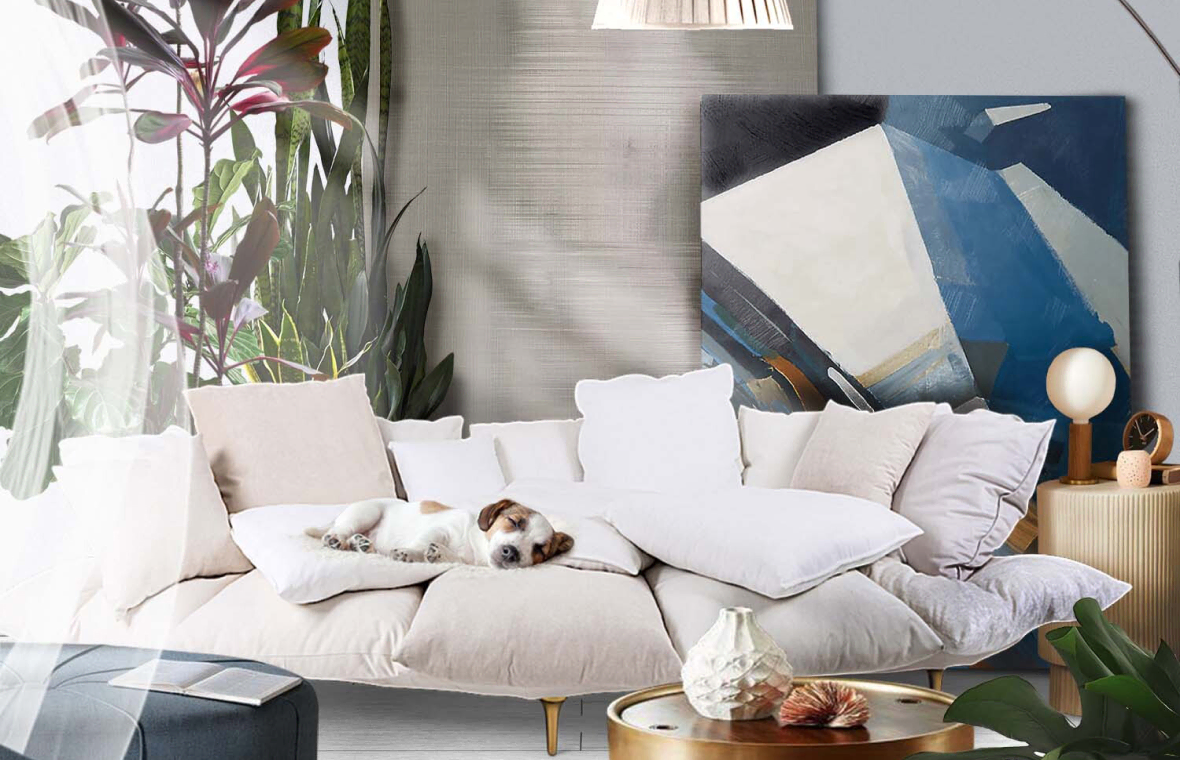
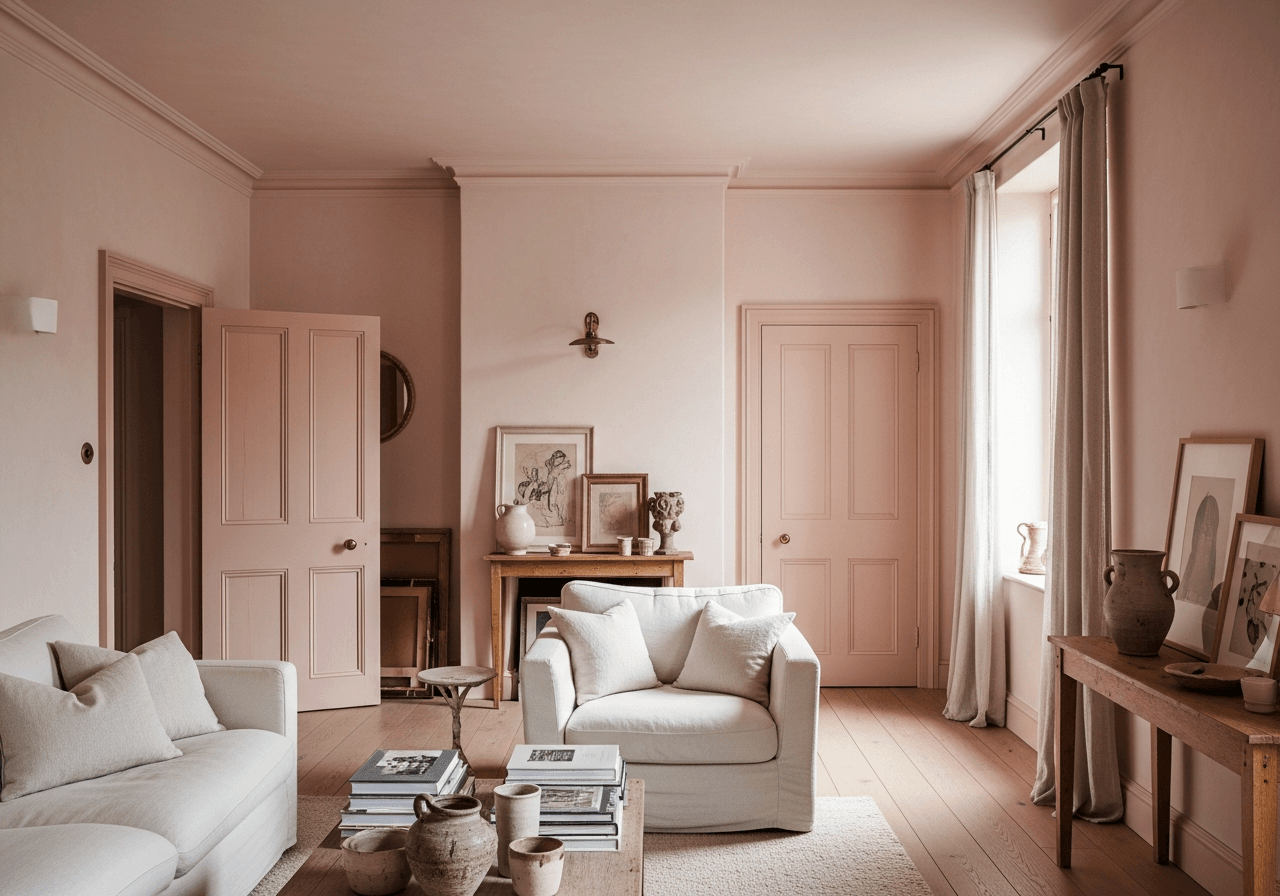
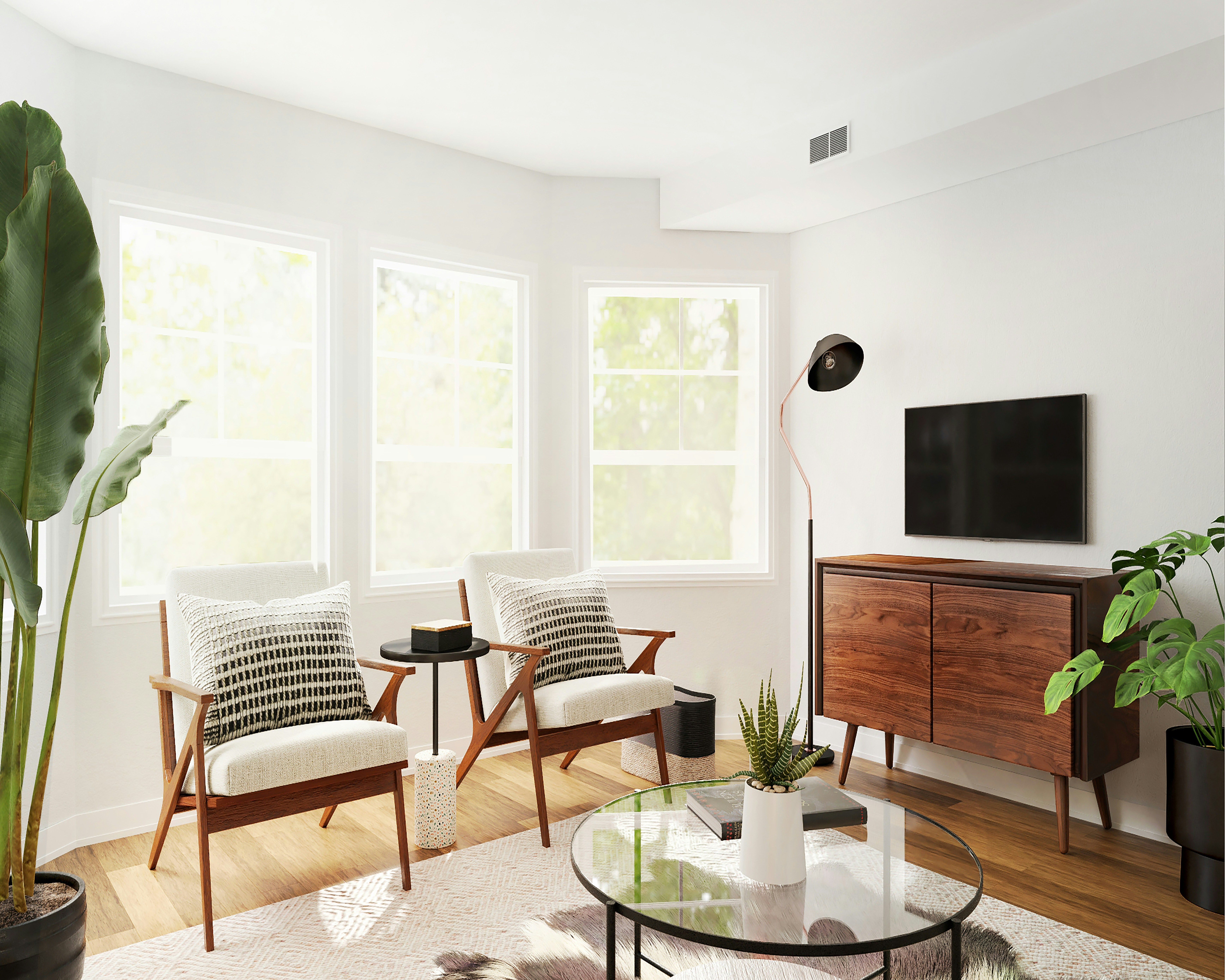
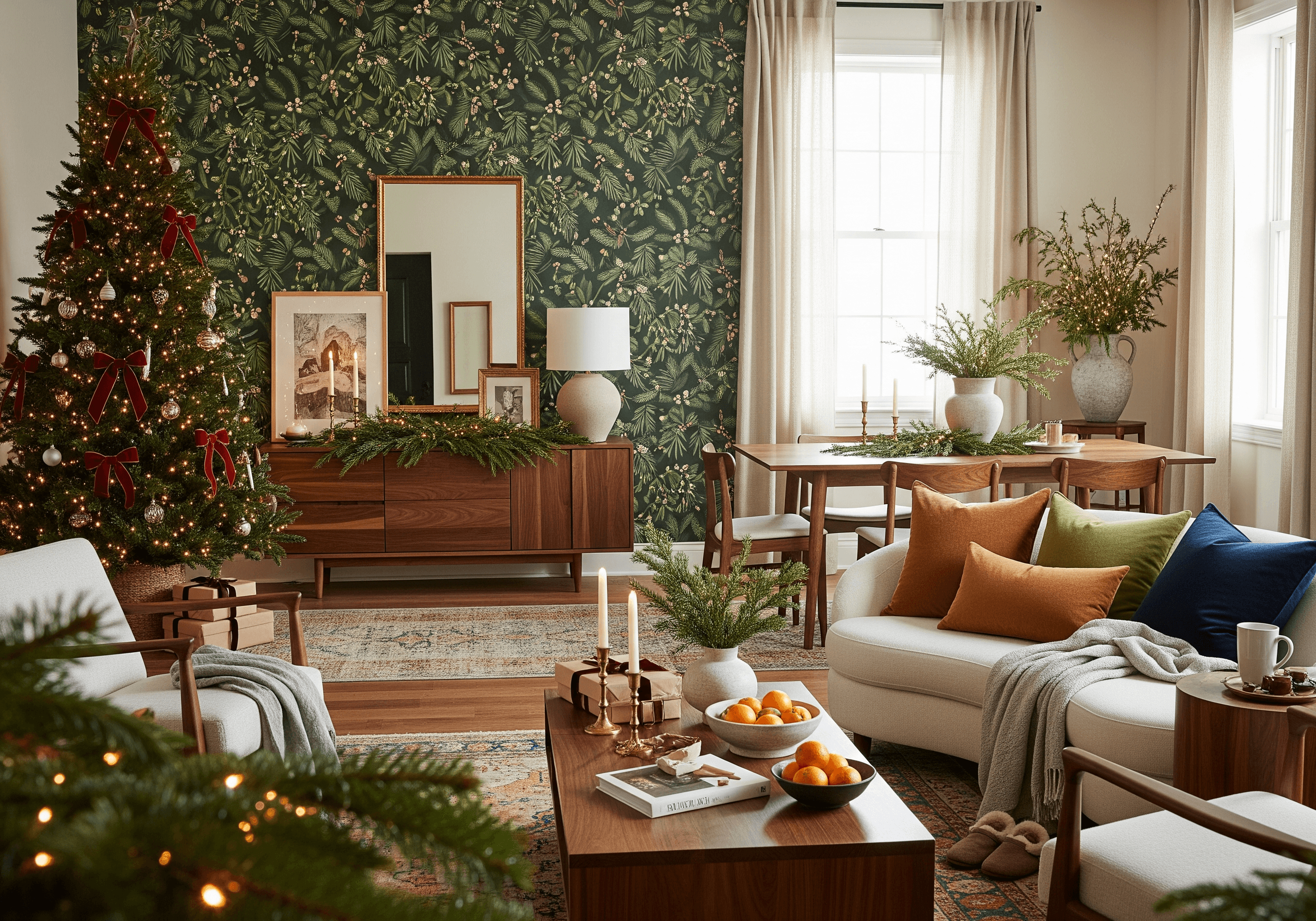
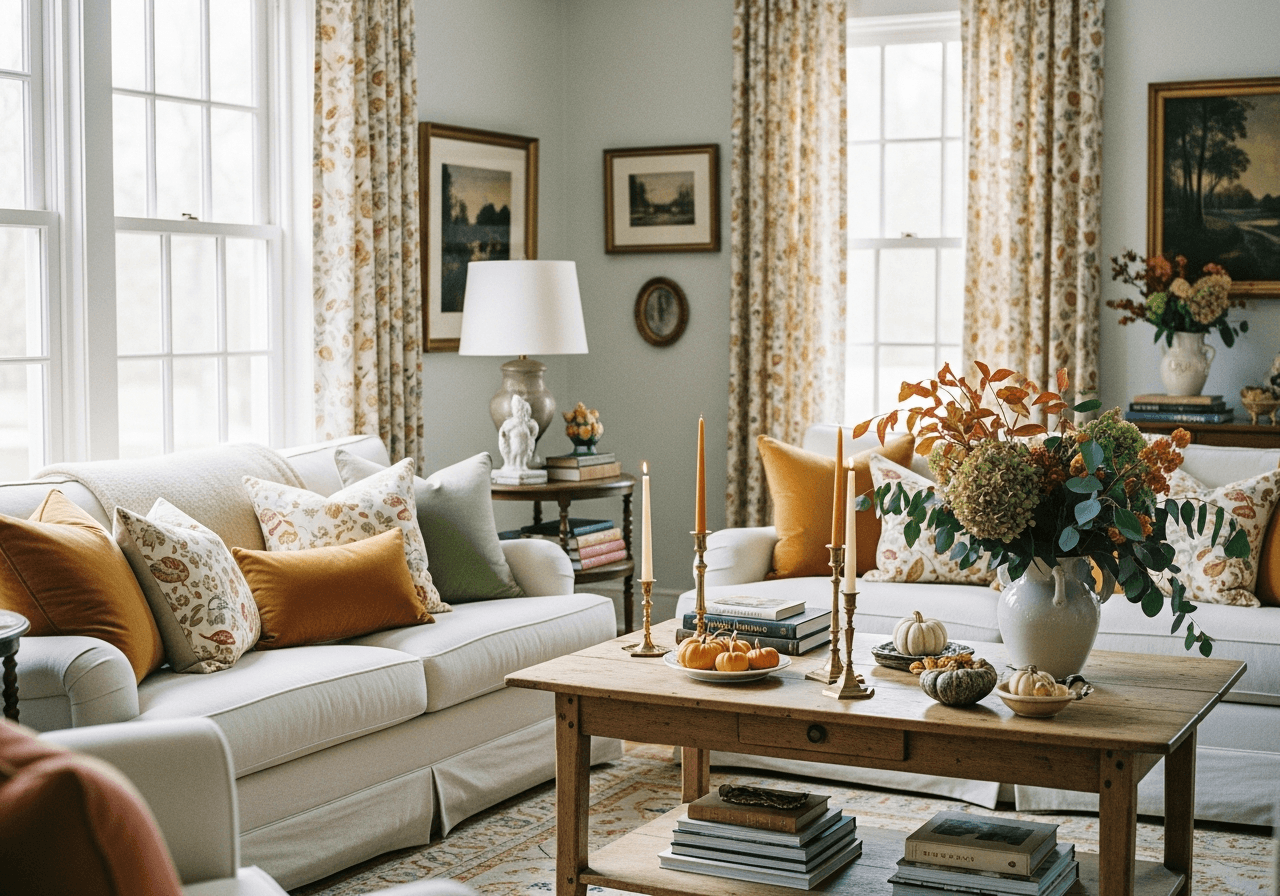
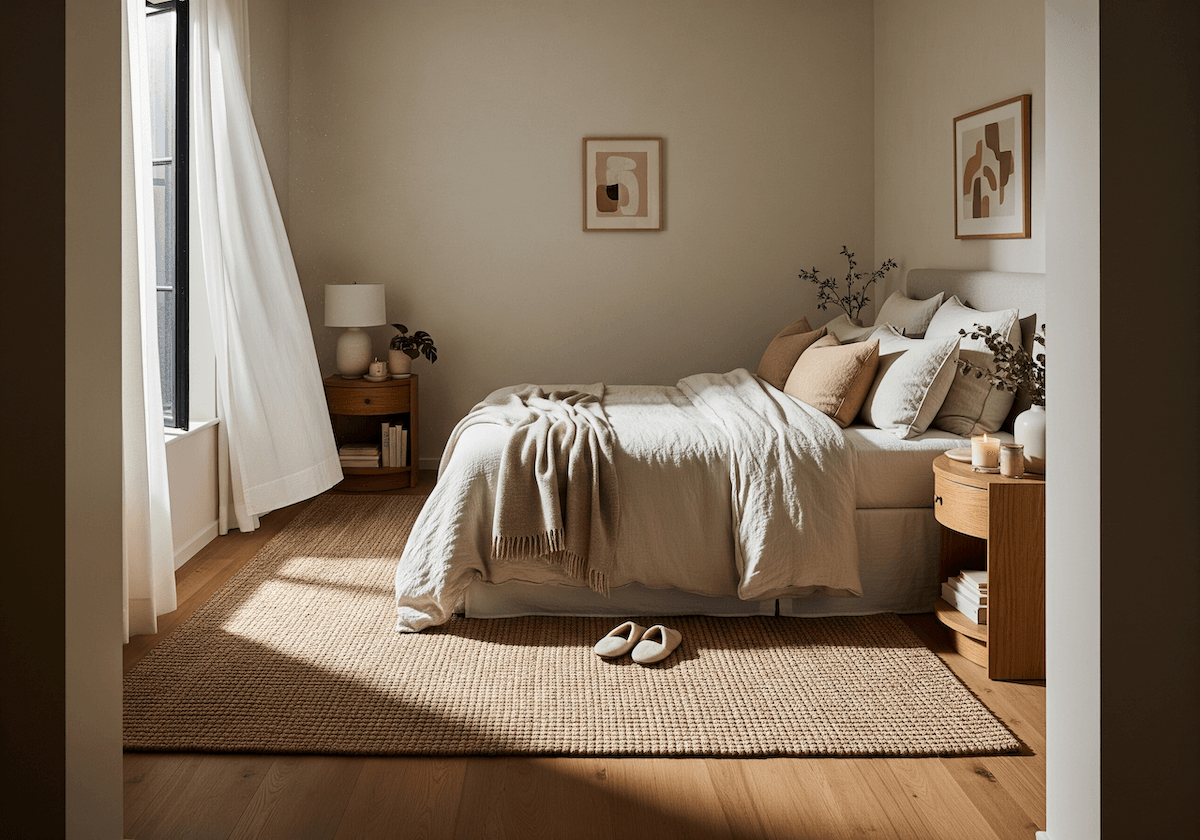
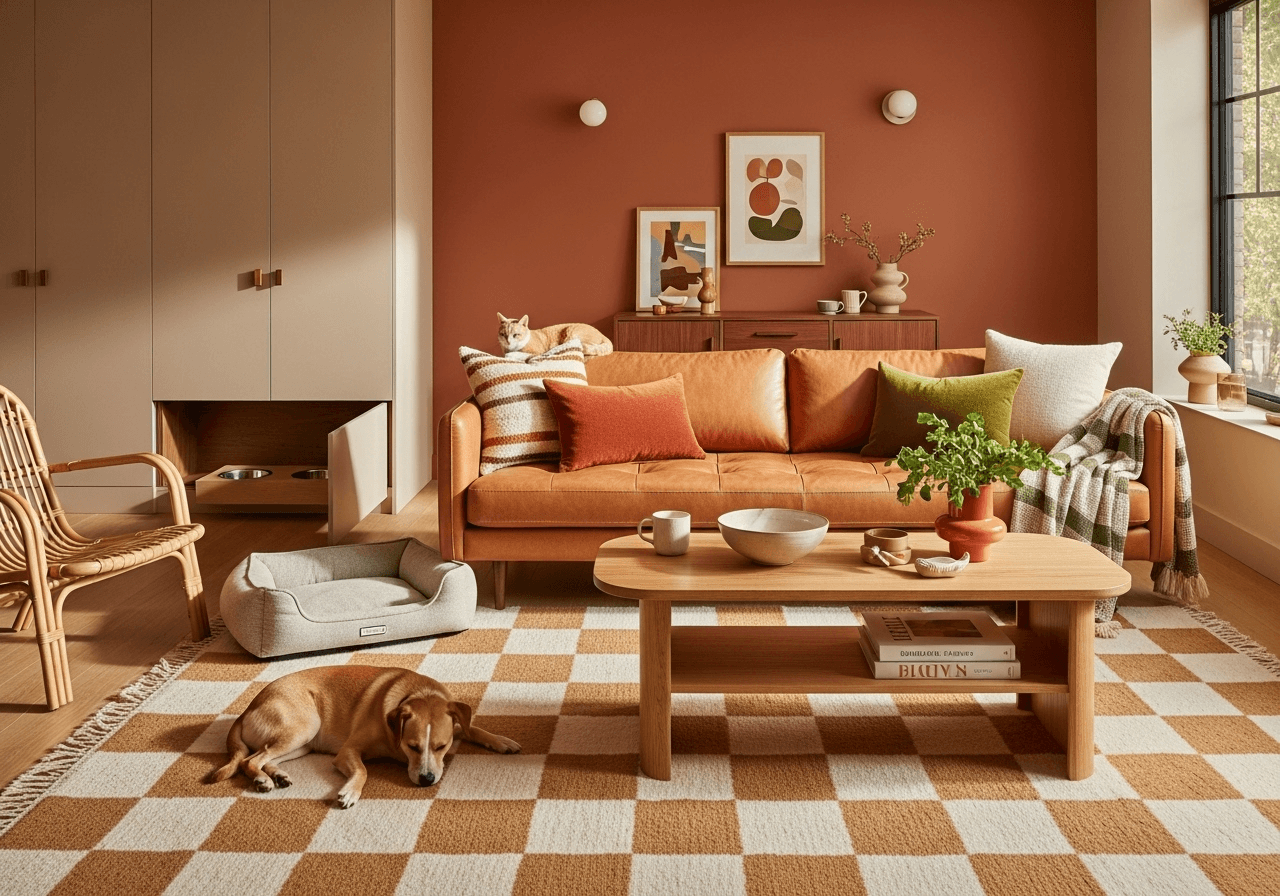


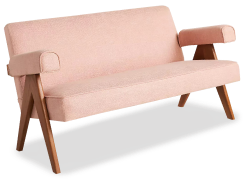

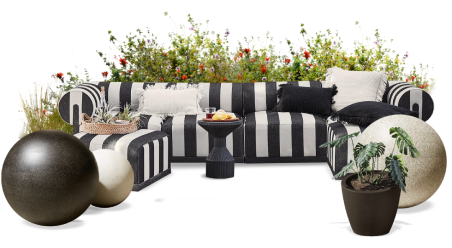
 19h left
19h left





